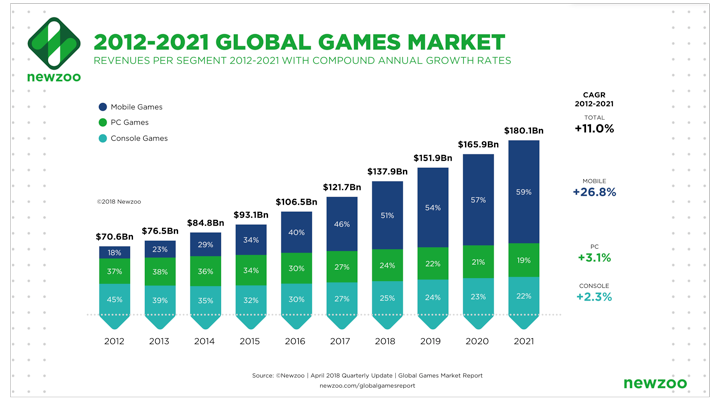This was in relation to techuse's comment below and some associated comments from DSoup (I think) about many GPU's being sold into mining farms and professional workstations with no intention of ever being used for gaming. The presence of an active Steam client on the machines suggests those machines are being used for gaming (however infrequently). i.e. those GPU's were not purchased for exclusively non-gaming purposes. So what we can say is that all of the GPU's in those systems are used for gaming, or at least have been used for gaming at some point. Which is a number we can compare to console sales because there is no guarantee that a sold console is used regularly, or even used at all.
I agree it tells us nothing of the amount of gaming hours spent, or the likelihood of that market buying the next big AAA release. But to answer the question of "how many gaming GPU's are on the market vs consoles sold". It's a valid and useful data point. And it can be used in conjunction with the Steam Hardware Survey to give us an idea of the spec of those PC's as well. Obviously taking one months worth of active Steam accounts as a measure against all consoles sold is probably significantly underselling the PC position, but even as a lower bound it's a useful metric.
To put some context against that, a quick look at the SHS shows that over 22% of all GPU's are of RTX class (not counting the RDNA2 GPU's which don't get their own breakdown). So with the detail above we can make a reasonable assumption that there are at least 22% of 120m, i.e. 26.4m individual RTX powered PC's logging into Steam in a single month. Are they all all being actively used for games? Who knows? But we know their owners have or at least have had some intention of gaming on them at some point, and when you compare those numbers to say PS5 sales which are probably in the 16m region by now, if comes across as an interesting data point to me.
The initial comparison that I posted (from Eurogamer) was comparing the active Steam users to the active XBOX Live and PSN users.
Valid but it's usefulness is predicated on what is being discussed. Total sales of GPUs which is often used to illustrate the size of the PC gaming market for example is not very useful because we have no idea how many of them are being used to mine. There seems to be a disconnect with data examining the size of the PC gaming market with capable hardware and the smaller amt of revenue this market generates for publishers. This could be down to any number of things, just airing out some of my thoughts.



